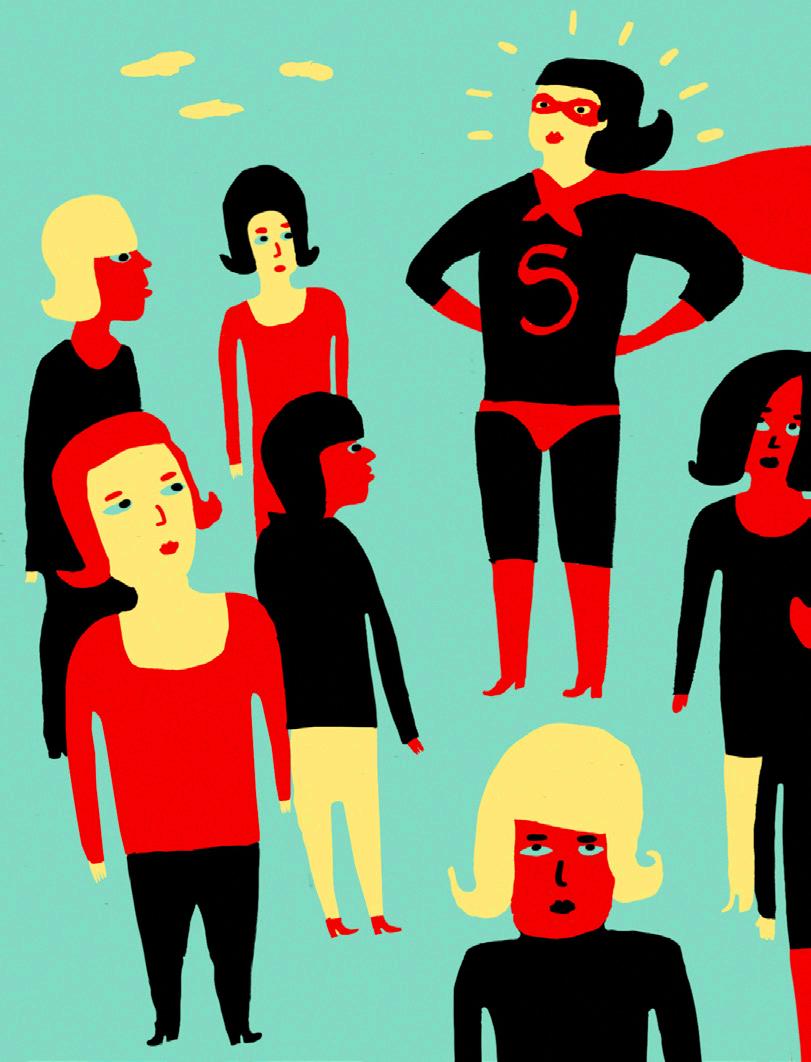
4 minute read
BE QUIET - Adapting to a more introverted world
by Marina Gask
Welcome to the new world order, where staying in is the new going out and where businesses pivot on a daily basis. But how can you embrace a working life less noisy?
Advertisement
The introverts shall inherit the Earth. Or at least they’re handling our current lockdown pretty well, experiencing something of a golden age as we all retreat into our shells. After all, unlike the out-there extroverts, the air-kissers, the networkers and the salespeople who have ruled the roost for the past 50 years, introverts know that self-isolation is their preferred modus operandi.
The seismic events that have led to the world effectively sending itself to Coventry (well, at least when it comes to face-to-face interactions) have left many of us grappling with how to operate a business that requires contact. So how can those who have always prospered by being “out there” suddenly survive in a world behind closed doors?
Gone are the energising brainstorms, the hectic events programmes and the networking drinks. And with them go many opportunities for social interaction and chance connections. If you’re an extrovert, you draw your energy and confidence from being around other people, so today’s WFH set-up may well be giving you cabin fever.
That should come as no surprise. “Extroverts love an audience, and their audience has shrunk to the people they live with,” says gravitas coach and former PR Antoinette Dale Henderson, author of Power Up: The smart woman’s guide to unleashing her potential. It’s just a case of managing the situation.
SAINTS IN HELL
Of course, this is a welcome break for anyone who prefers their own company. Being at home, seeing fewer people and spending more time on reflective work appeals to introverted people, because they don’t have to push themselves out of their comfort zone.
“Telling an introvert to go to a party is like telling a saint to go to hell,” says Criss Jami in his book Killosophy. And this is their chance to shine, adds Nadia Finer, business coach and shyness expert. “Introverts tend to be good listeners with a strong internal dialogue, mulling things over. When faced with a challenge like how to adapt a business to this new situation, they go within themselves to find the solution, weighing up the options.”

IKON IMAGES/OVIND HOVLAND
The value of this kind of thinking is immeasurable, but the modern world has been built to favour extroverts. “Extroversion is actually one of the ‘Big Five’, the key factors that many psychologists say contribute to success,” says business psychologist Paula Gardner. Extroverts know more people, work their contacts and create those “coincidental” opportunities that lead to career success.
“They are often more comfortable putting themselves forward, which is why society sees them as more valuable ‘for the tribe’ and why they often get more opportunities than introverts, who may be holding themselves back,” Gardner explains.
Introverts have always had to adapt in order to be successful, to muster the confidence to speak up in meetings and even to be the life and soul when required – then holing up in their bunker afterwards in order to recover in comfortable isolation.
Nonetheless, the business world is reassuringly peopled with plenty of successful introverts, including Bill Gates, Warren Buffett and Marissa Mayer. The world of PR is no exception. After all, introverts are estimated to make up between 25% and 40% of the population.
QUIET STRENGTH
So is the key to thriving in lockdown channelling our inner introvert? Not exactly. We don’t have to run and hide; just be a bit more reflective and work on building relationships.
For self-confessed extrovert Ceri-Jane Hackling, managing director of Cerub PR, “it’s been challenging to live without the buzz I get from networking, but ultimately it’s a really good chance to consolidate those contacts I make and never usually get the time to follow up”.
Extroverts get their energy from other people, so it’s important to keep topped up, says Gardner. “Set up daily huddles: calls with the team to talk about what you’re working on, to set goals and talk about issues. Your creative well may run dry unless you have someone to bounce ideas around with.”

IKON IMAGES/OVIND HOVLAND
Introverts’ dedication to self-care, though, is something extroverts should emulate. “It’s a time to look inwards and find what truly makes you happy,” says Jane Austin, founder of Persuasion Communications. “You can spend time improving yourself as well as developing a better work/life balance, which has been shown to boost productivity.”
And at this challenging time when business models and PR strategies have been thrown into disarray, it has never been more important to listen to more reflective colleagues. “There’s a lot of noise and talk, people who like the sound of their own voice, but sometimes it’s better to say nothing and to reflect,” says Finer. “Consult the deeper thinkers in your team before you offer solutions.”
To be truly resilient, introverts and extroverts can use this as an opportunity to learn from one another, says Dale Henderson. “Extroverts are coping by using their voice online: creating more video content, organising virtual meet-ups, setting up WhatsApp groups, proactively sharing how they’re feeling and what they’re experiencing, being useful. We need their energy to power us forward, but it’s important for them to be aware that this level of intensity, from all angles, can be overpowering, so less is more.
“By contrast, introverts’ go-to strategy is to hunker down, go underground, protect themselves from too many loud voices. The danger of this is that introverts, who prefer to reflect before they speak, will go unnoticed, especially when our perception of someone is minimised to a small box on a screen.”










